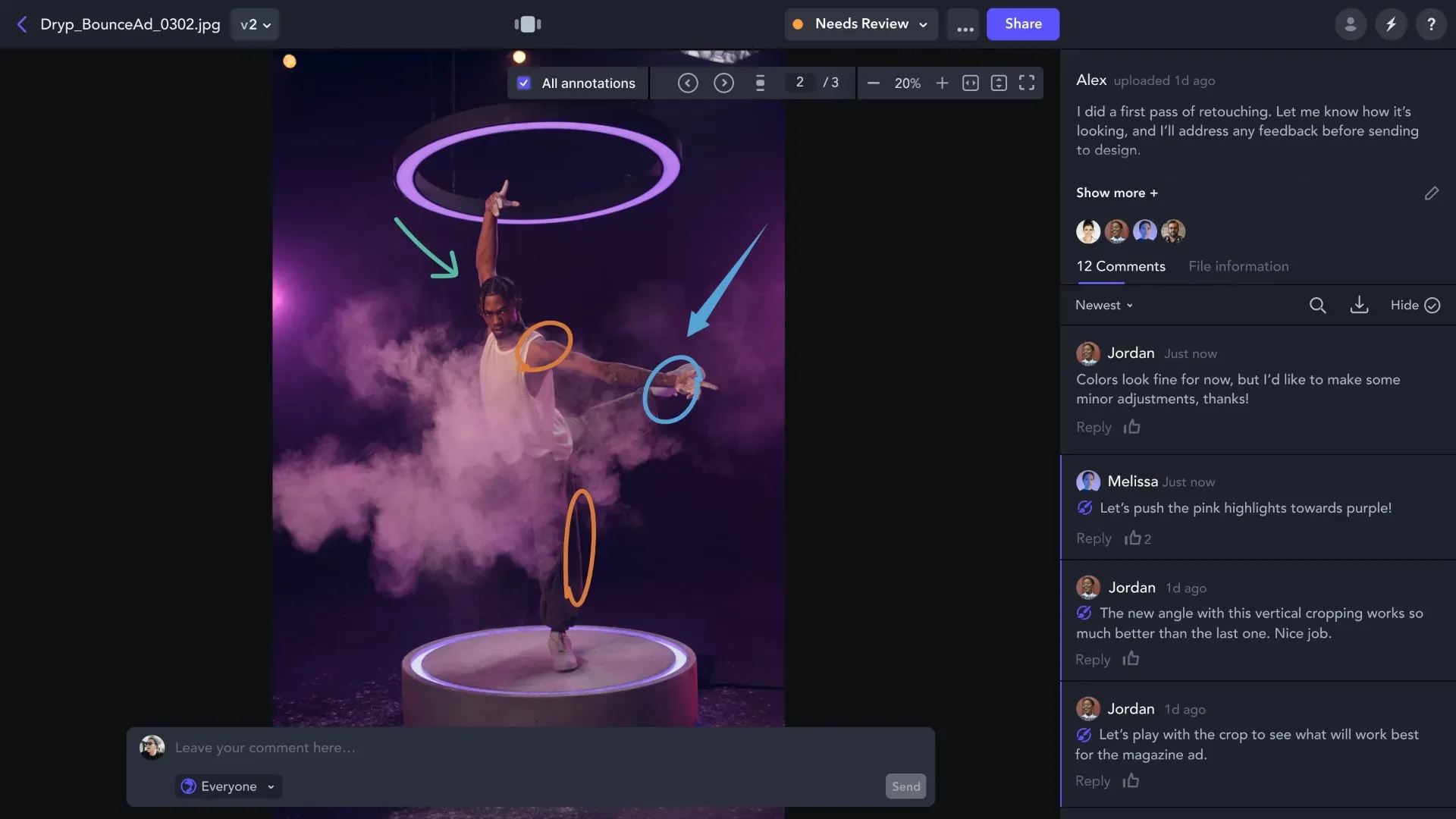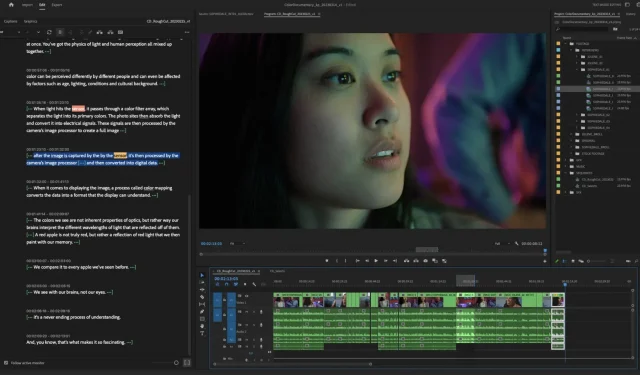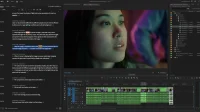New features in Premiere Pro include the ability to use your iPhone’s HDR footage in SDR projects without getting too bright video and washed out colors.
- What’s happening? Ahead of NAB 2023, Photoshop maker Adobe has unveiled new features for its Premiere Pro video editing software, which will be available to users from May.
- Why care? First, Premiere Pro will finally let you use HDR footage shot on your iPhone in your SDR projects without color washed out.
- What to do? Read the announcement on the Adobe site.
Premiere Pro gets text-based video editing capability
Text-based video editing with Sensei (Adobe’s artificial intelligence in the cloud) promises to make video editing as easy as copying and pasting text.
Premiere automatically transcribes clips. This will allow you to copy and paste the transcribed text in any order, while the application will automatically apply the changes to the timeline with new abbreviations (you can search the transcripts for exact words and phrases).
You will still need to adjust the details and make manual changes to your project. Either way, it will save a lot of time for video editors. Premiere is the only non-linear video editing software that implements this feature.
iPhone HDR Frame Correction, Automatic Tone Mapping
Automatic tone mapping and log color detection let you mix and match HDR footage from different sources in the same SDR project.
You could have done this earlier, but you would end up with washed out colors because Premiere didn’t know how to properly mix frames with different color spaces.
This will be especially true for people who would like to import HDR footage shot on their iPhone into Premiere and use it in SDR projects (the same goes for mixing HDR footage shot on other cameras).
Better performance, multi-frame rendering of shapes, etc.
In addition to the new features mentioned above, Adobe’s announcement lists a lot of nice things, such as automatic background saving, faster timeline layer selection, multi-frame shape rendering, new keyboard shortcuts for selectable track mattes, a new Properties panel, enhanced format support for RED V-Raptor X, ARRI Alexa 35, and Sony Venice v2 cameras, GPU acceleration for debayerization and transition effects, co-editing improvements, and more.
Frame.io now supports photos and PDFs

Aloe said in a separate announcement that its collaboration with Frame.io is expanding beyond video and now includes images and PDFs. Frame.io is a cloud-based video collaboration service that streamlines and simplifies video workflows.
Adobe users will be able to upload RAW photos directly to the cloud, starting with the Fujifilm X-H2 and X-H2S cameras. There are also new security features.
One of them, Bubble Forensic Watermarking, is particularly interesting. It makes a hidden watermark on the footage so you can easily investigate leaks with an audit. Forensic Watermark uses pixel-level detail that Adobe claims can withstand “screen recording, file copying, and external recording.”


